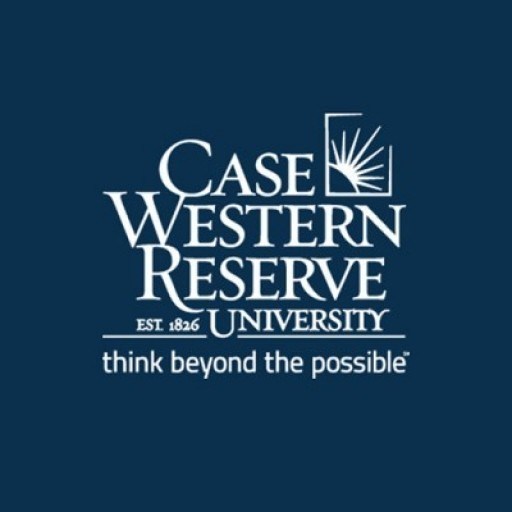Photos of university / #cwru
The Master of Arts in Bioethics at Case Western Reserve University offers a comprehensive and interdisciplinary curriculum designed to prepare students for ethical decision-making and policy development in the rapidly evolving fields of medicine, healthcare, and biomedical research. The program integrates perspectives from philosophy, law, medicine, and public health to equip students with the theoretical knowledge and practical skills necessary to address complex moral issues in clinical practice, biomedical innovation, and healthcare policy. Students will explore topics such as medical ethics, reproductive rights, end-of-life care, research ethics, genetics, and emerging biomedical technologies. The program emphasizes critical thinking, ethical analysis, and effective communication, enabling graduates to serve as ethical consultants, policy advisors, or researchers in diverse healthcare settings and organizations. Through a combination of coursework, seminars, and a capstone project, students gain a rigorous understanding of the moral principles underpinning clinical and research ethics, as well as the societal implications of biomedical advancements. The program is suitable for healthcare professionals, researchers, legal experts, and individuals seeking to make meaningful contributions to ethical issues in medicine and science. Graduates of the Bioethics program at Case Western Reserve University will be well-prepared to engage in interdisciplinary dialogues, contribute to policy development, and advance the ethical standards of healthcare practices and biomedical research worldwide.
All students pursuing a Master of Arts degree in bioethics are required to complete the interdisciplinary core of 12 credit hours (the equivalent of four courses) in the first two semesters of their first year of study.
The courses, BETH 401 Foundations in Bioethics I, and BETH 402 Foundations in Bioethics II, each six credits, examine 10 basic topic areas in bioethics: death and dying, the therapeutic relationship, method and theory in bioethics, organ transplantation, health care justice, defining health care needs, reproduction and fertility, families, babies and children, research ethics and genetics. Classes meet two evenings per week for seminar sessions (two hours per session).
Another required course is BETH 405 Clinical Ethics Rotation. This course requires a minimum of 8 hours of clinical experience per week during two 10-week rotations. Students spend most of their time observing rounds in relevant services (intensive care units, pediatrics, geriatrics, etc.) with leading clinicians at several area hospital sites. Students must complete rotations at two sites. At the conclusion of each rotation, students are familiar with the clinical, psychological, social, professional, and institutional contexts in which ethical problems arise. Also, they are able to identify, analyze and understand ethical issues as they develop.
In addition, all students must complete 12 credit hours of electives. Electives are selected in consultation with a faculty advisor. Electives must enhance the student’s understanding of bioethical issues and must be relevant to the student’s academic goals.
- Foundations in Bioethics I
- Clinical Ethics Rotation
- Elective I
- Elective II
- Foundations in Bioethics II
- Clinical Ethics Rotation
Requirements
- Applicants must have a good academic record, e.g., a B-average or rank in the upper third of his or her graduating class at an institution whose status and programs are readily assessed.
- Applicants must meet all of the undergraduate prerequisites for the proposed field of graduate study.
- Statement of Objectives — Some programs have this built into the application. If not, create your own using "Statement of Objectives" as the heading. The statement should be one to two pages and include your purpose in undertaking graduate work as well as an explanation of your study and research interests as they relate to your undergraduate/graduate study and professional goals.
- Academic Transcripts – You are required to identify all post-secondary educational institutions you have attended on your application form, and to submit an official transcript from each. Admission to the School of Graduate Studies is conditional on final certification of degrees awarded. Note to International Students: Documents in languages other than English must be accompanied by certified translations in English.
- Letters of Recommendation - Three letters of recommendation must be submitted from those individuals sufficiently familiar with you, and who can assess your academic preparation, abilities and accomplishments. Letters should be from your most recent instructors in your proposed field of study. If you have been out of school for several years, one letter may be from your employer, supervisor or other person familiar with your most recent activities.
- Test Scores – Your department will identify required standardized tests. When you fill out forms for these use 1105 as the institutional code for Case Western Reserve University. The School of Graduate Studies will forward all official score reports of standardized tests (GRE, TOEFL, etc.) to the program of interest. The department will inform you which standardized tests are required for your program. International students whose first language is not English must demonstrate English proficiency by taking the Test of English as a Foreign Language (TOEFL) and earn a minimum score of 577 if paper-based, or 90 if Internet-based. The International English Language Testing System (IELTS) is also accepted. The minimum acceptable score is 7.0. Some departments may require higher scores. International applicants cannot be admitted without receipt of an acceptable official TOEFL score. The TOEFL is valid for two years after the test date. The GRE is valid for five years after the test date.
- Application Fee - A nonrefundable application fee of $50 is required for each application submitted.
The Bioethics program at Case Western Reserve University offers various financing options to support students throughout their studies. Tuition fees for graduate programs are determined annually and can vary depending on the specific track or concentration within the bioethics discipline. The university provides a range of funding opportunities including scholarships, assistantships, and fellowships aimed at reducing the financial burden on students. Applicants are encouraged to explore merit-based scholarships that consider academic achievement, relevant experience, and potential contributions to the field of bioethics. Graduate assistantships may be available, involving teaching, research, or administrative responsibilities, which typically include tuition remission and a stipend. Fellowships are also offered, often based on merit and need, providing dedicated funding for qualified students. Additionally, students are advised to seek external funding sources such as federal loans, private scholarships, and grants from health or ethics organizations. The university’s financial aid office offers guidance on completing the Free Application for Federal Student Aid (FAFSA) and accessing other funding resources. International students should explore specific scholarships available for non-U.S. citizens and ensure they meet all eligibility requirements. It is recommended that prospective and current students regularly check the university’s official website for updates on new scholarships, application deadlines, and detailed funding policies related to the Bioethics program. Furthermore, some students may be eligible for tuition reimbursement programs or employer sponsorships, depending on their professional affiliation and circumstances. Overall, students are encouraged to proactively research and apply for multiple funding sources to ensure adequate financial support during their graduate studies. The university fosters a supportive environment for students seeking financial assistance, emphasizing the importance of planning and early application to maximize available resources.
| Additional Fees and Expenses | |
|---|---|
| Health Plan | $986/semester |
| One to One Fitness (Spring fee includes Summer) | Fall $116 + sales tax, Spring $145 + sales tax |
| Activity Fee | $20/semester |
| Graduate Student Council Fee (Students entering Fall 2015 & later) |
$14/semester |






